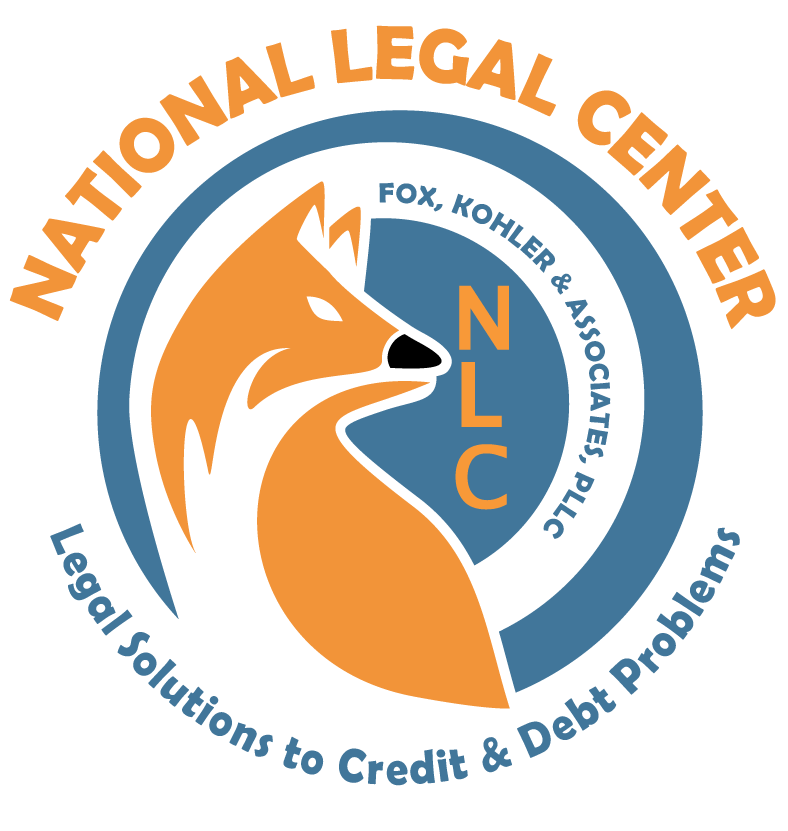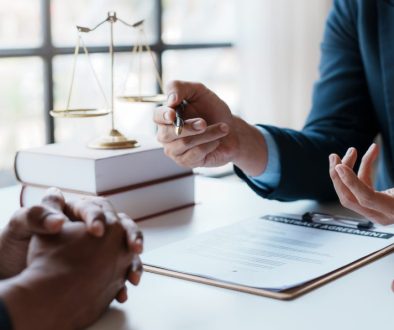When you need help with debt, the idea of filing for Chapter 13 bankruptcy can be a frightening concept. Sure, you probably know that bankruptcy is meant to be helpful, but without a full understanding it can be hard to know if you’re the type of person it’ll be helpful for, or if you should look for alternatives to bankruptcy.
Trouble with debt can be caused by things that can’t be discharged in a Chapter 13 bankruptcy. If you have child support, alimony, or tax responsibilities, you’ll still have to sort out these debts. You also won’t have an easy time getting your student loan debt discharged through bankruptcy. Not to mention that you could still lose your home if you have a secured debt on your property.
Sometimes bankruptcy is a clear solution. Other times, an alternative to bankruptcy could help alleviate more of these debt-related struggles.
This article looks at the different types of bankruptcy, the limitations of Chapter 13 bankruptcy, and the National Legal Center’s Debt Resolution Plan as an alternative to Chapter 13 bankruptcy.
Let’s get started.
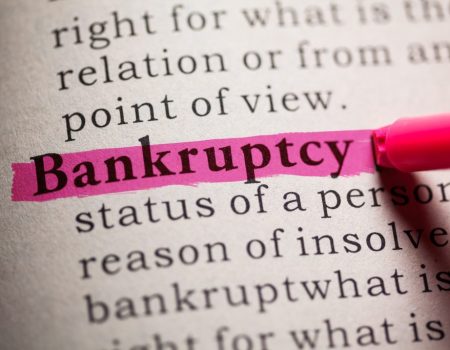
Types of Bankruptcy
Generally, two types of bankruptcy exist: commercial and consumer bankruptcy.
Commercial bankruptcy involves legal proceedings that free businesses and corporate entities from paying some or all of their debts. Companies can typically file for Chapter 7 or Chapter 11 bankruptcy.
Consumer bankruptcy is bankruptcy for individuals. In other words, it involves legal procedures that relieve a person from some or all of their debts. Under consumer bankruptcy, individual debtors can file for Chapter 7 or Chapter 13 bankruptcy.
Chapter 7 Bankruptcy
Chapter 7 bankruptcy (also known as straight or liquidation bankruptcy) is particularly popular because it is the simplest and most common bankruptcy filing. According to the statistics, out of the 413,616 bankruptcies filed in 2021, 288,327 were Chapter 7 bankruptcies.
When you file for Chapter 7 bankruptcy, the court effects a temporary stay that prevents your creditors from collecting your debt payments or executing any legal action, such as foreclosures or wage garnishments.
During the temporary stay, the court will also take possession of your properties and appoint a trustee to oversee the bankruptcy procedure.
The trustee will review your assets and liquidate all non-exempt properties to pay your creditors. Typically, the properties that fall under the exempt category (assets that you won’t sell) vary by state.
Your trustee will arrange a court sitting (or creditor meeting) where you’ll answer questions about your financial situation. After paying your creditors from the sold assets’ proceeds, the court will discharge all remaining debts.
However, not all debts are dischargeable under Chapter 7. You’ll still have to pay off student loans (with a few exceptions), child support, alimony, tax liens, secured debts, and any unsecured debts deliberately left out of your bankruptcy filings.
There’s a possibility to avoid some of these debts, such as student loans, if you can prove undue hardship. Typically, Chapter 7 bankruptcies take around four to six months to complete.
Qualification Requirements
If you file for Chapter 7 bankruptcy, you’ll need to meet some requirements before the court grants your request. Below are the general qualification requirements for Chapter 7 bankruptcy:
- You must complete an individual or group counseling program under an approved credit counseling agency.
- You must not have filed bankruptcy too recently.
- If you have a dismissed Chapter 7 or Chapter 13 bankruptcy filing, you must wait a period of time before submitting another petition before the court.
- Either your average monthly income for the past six months must be lower than the median income for the same-sized household in your state, or you must undergo a means test to find out if your disposable income can partially pay off your debts to unsecured creditors.
If your disposable income at the end of the month can make partial repayments to your unsecured debtors, then you may have failed the means test, and the court may deny your request for Chapter 7 bankruptcy. The next line of action would be filing for Chapter 13 bankruptcy.
That said, you can file for bankruptcy on your own or hire a lawyer to handle the process for you. Or, you can explore alternatives to bankruptcy with a debt settlement attorney.
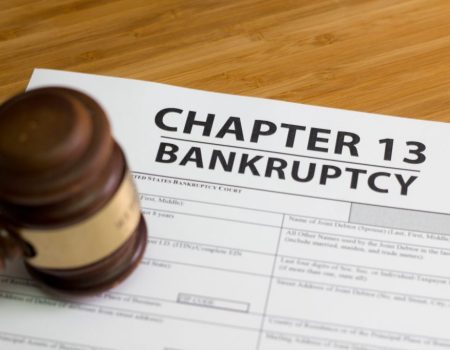
Chapter 13 Bankruptcy
Chapter 13 bankruptcy (or wage earner’s bankruptcy) is a bankruptcy option for people who cannot pass the Chapter 7 bankruptcy means test. However, some people opt for this type of bankruptcy because it allows them to keep assets they would have liquidated if they filed for Chapter 7 bankruptcy.
Generally, in a Chapter 13 bankruptcy, you’ll submit a debt reorganization plan to a court that applies all your disposable income to pay off your creditors. The court will appoint a trustee to collect and distribute your repayments to the entities you owe.
The reorganization plan typically ensures that creditors cannot repossess or foreclose upon your home while it discharges other debts. However, like Chapter 7 bankruptcy, student loans, child support, and alimony are not dischargeable under Chapter 13 bankruptcy.
With a Chapter 13 bankruptcy, you can resolve your debt obligations within three to five years.
Qualification Requirements
Like Chapter 7 bankruptcy, debtors must meet several requirements to qualify for Chapter 13 bankruptcy. Here are the general requirements for filing for Chapter 13:
- You must have a steady income (monthly salary, pension, unemployment compensation, rent, social security payments, etc.) to enable you to make monthly payments.
- You must be current on your tax filings.
- You cannot have filed bankruptcy too recently.
- You must fall within limitations of maximum secured and unsecured debts.
Only individuals and sole proprietors can file for Chapter 13 bankruptcy. Small businesses and corporations are eligible for Chapter 7 and Chapter 11.
Can You Remove Chapter 13 from Your Credit Report before 10 Years?
It’s generally impossible to remove a Chapter 13 bankruptcy from your credit report, unless it was filed in error. However, a Chapter 13 bankruptcy stays on your record for seven years, after which it’ll automatically fall off your credit report.
Limitations of Chapter 13
While bankruptcy can help you deal with some of your debt issues, it has its fair share of limitations, including a handful of debt problems you’ll have to still deal with. Here are some of the limitations of Chapter 13 bankruptcy:
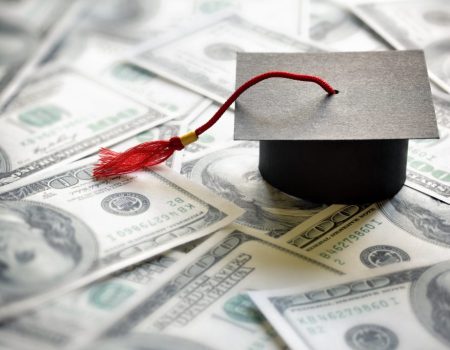
Student Loans
A Chapter 13 bankruptcy will not relieve you of student loan debt. You can only avoid paying student loans in a Chapter 13 bankruptcy if you can prove that repayment would cause undue hardship, which can be difficult in most cases.
Medical Bills
In a Chapter 13 bankruptcy, you put together a three to five-year plan to pay off your debt. Your trustee sums all your bills together and determines the amount you can pay based on your earnings.
Typically, the repayment sum for each creditor is less than the money you owe. In other words, your creditors (including your doctors and any additional hospital bills) will receive prorated amounts of the money owed.
The downside? Hospitals can deny you medical treatment after a bankruptcy filing, even if you have ongoing treatment.
Co-signed Debts
A Chapter 13 bankruptcy prevents creditors from attempting to collect repayments for your debts from your co-debtors, as the court would order an automatic co-debtor stay immediately after granting your request.
However, creditors can lift the stay and make your co-signers liable for your debt. Here are some situations where that could happen:
- The co-signer received a primary benefit from the loan.
- Your Chapter 13 repayment plan doesn’t include the co-signed debt.
- The co-debtor stay would irreparably harm the creditor’s interest.
Your co-debtor would also still be liable for any co-signed debts if the court dismisses your Chapter 13 case or converts it to a Chapter 7.
Community Property States
Several states have community property rules, including Alaska, Arizona, Idaho, Louisiana, Nevada, New Mexico, Texas, Washington, and Wisconsin. In these states, properties bought by either partner while married belong to both spouses.
As such, the state refers to the assets as community property. Similarly, the state also treats debts owed by either couple while married as belonging to both individuals.
These rules do not apply if the affected spouse incurs the debt or buys the property before the marriage or after a legal divorce. That said, in the event of a bankruptcy, creditors of one partner can reclaim the married couple’s assets as repayments for the affected individual’s debts.
However, the creditor cannot repossess the personal property of the other spouse obtained before marriage or after a divorce.
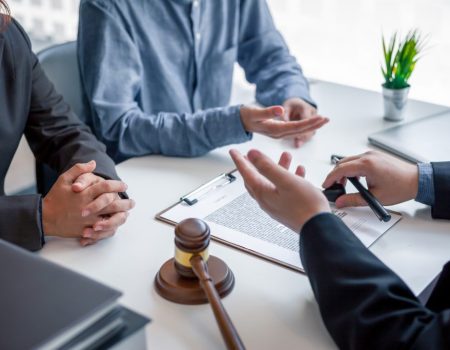
Chapter 13: By the Numbers
Bankruptcies are pretty complicated, with several prerequisites and limitations. As such, it helps to know the numbers behind them to decide whether filing for one is the best option for you.
Let’s discuss some figures surrounding a Chapter 13 bankruptcy, such as the cost and how long it’ll stay on your credit report.
How Much Does Chapter 13 Bankruptcy Filing Cost?
Like most legal proceedings, Chapter 13 bankruptcies typically involve the services of an attorney. Before filing for a Chapter 13 bankruptcy, you must know how much it’ll cost you in legal fees, especially since you’re already dealing with financial difficulties.
On average, a Chapter 13 Bankruptcy can cost you around $3,000. However, you could pay as much as $5,000 or as low as $2,500, depending on your case, resident state, or attorney.
Usually, you’ll pay a down payment before your lawyer files your request. After the filing, the rest of your payment becomes part of your Chapter 13 repayment plan.
How Long Does a Chapter 13 Bankruptcy Stay on Your Credit Report?
A Chapter 13 bankruptcy will stay on your credit report for seven years from your filing date. After the seven-year term, the bankruptcy will automatically fall off your credit report.
How Often Is Chapter 13 Bankruptcy Successful?
The success rate for Chapter 13 bankruptcies doesn’t make for good reading. One study of Chapter 13 bankruptcies over a seven-year period (2008-2015) highlighted that only 41% of cases were successful. Chapter 7 bankruptcies recorded more success (96%) within that same timeframe.

Creditor Contact after Bankruptcy Filing
A Chapter 13 bankruptcy effects an automatic temporary stay that prevents creditors from attempting to collect payments for your debts.
Usually, you’ll have to notify your creditors of your bankruptcy filing using a written notice. However, a verbal explanation is enough to prevent collection calls.
Some creditors may flaunt the court order and continue to contact you. In this case, you should inform your attorney immediately to take legal steps to stop these collection calls.
If your attorney cannot assist you, the consumer protection attorneys at National Legal Center can work with your lawyer to take action against creditors or collectors who do not honor your bankruptcy filing.
Avoid Chapter 13 Bankruptcy
While a Chapter 13 bankruptcy might seem like a viable solution to financial trouble, it comes with its fair share of limitations. For one, it doesn’t discharge all your debt and will negatively affect your credit rating. Furthermore, it has a relatively low success rate. This is your financial future at hand. You may feel like there’s no way to avoid Chapter 13 bankruptcy, but there may be. You owe it to yourself to explore all your options.
If you’re struggling with debt, a debt resolution solution that doesn’t require filing for bankruptcy may be a more suitable solution for you. Fortunately, we provide such a remedy at the National Legal Center.
National Legal Center’s debt resolution legal service provides a customer-centric strategy to resolve your debt struggles without a Chapter 13 bankruptcy. Our attorneys will create an affordable plan and work with your creditors to resolve your accounts and get you out of debt.
Our attorneys plan for all possible scenarios during your debt resolution consultations with your creditors (including potential lawsuits), and we’re equipped to resolve all eventualities. Our services also cover all unsecured debts, including those owed to an original creditor or debt buyer.
Reach out to us today to learn more about our debt resolution services and how we can assist you.
FAQs
Does Your Credit Score Go Up after Chapter 13 Discharge?
Yes, you can take steps to improve your credit score after a Chapter 13 discharge. However, you might experience a significant dip in your score during the timeline of your bankruptcy.
Can I Remove Chapter 13 from My Credit Report before 10 Years?
You can’t remove a Chapter 13 bankruptcy from your credit report before the expiration of the timeline if you filed it intentionally. However, you can remove a Chapter 13 bankruptcy if it was filed by mistake.
What Happens to My Credit after Paying Off Chapter 13?
A Chapter 13 bankruptcy will automatically fall off your credit report after seven years. While you’ll experience a dip in your score, the effects will diminish as you take steps to improve your credit rating.
How Long Does It Take for a Credit Score to Go Up after Chapter 13?
It’ll typically take 12-18 months to improve your credit rating after a Chapter 13 bankruptcy.
